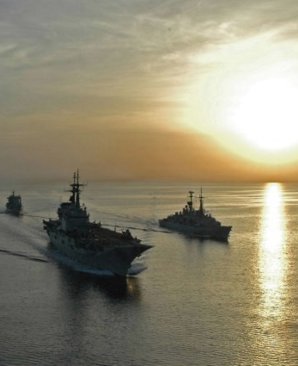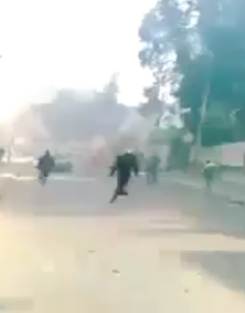|
World | Libya Politics | Human rights Foreign intervention in Libya more probable
As the regime's attacks on civilian protesters become steadily more grotesque, interference from abroad cannot be ruled out any longer, international analysts agree. Egypt, Italy, the European Union (EU) and NATO are indeed already sending signals that could justify an intervention from their part.
Today, the UN's food agency WFP warns of a collapse in food supplies for Libyans and an approaching hunger in Tripoli. This alone would allow for a humanitarian intervention, protected by military forces. The most effective intervention would of course be NATO-led. NATO leader Anders Fogh Rasmussen today called for an emergency meeting about how the military alliance could assist foreigners trapped in Libya. Especially the US - but also Turkey, fearing retaliation attacks on its many citizens in Libya - are against a larger intervention - for now. But there are people already speaking of a wider intervention than only rescuing foreign nationals. Sources in Brussels say that the EU is now to consider sending a "military humanitarian intervention force," which not only was to help evacuating the estimated 6,000 EU citizens still in Libya, but also protect Libyans. Meanwhile, the earlier proposals of a "no-fly zone" over Libya are laid dead as the largest threat against protesting Libyans no longer comes from the air but from mercenaries and the few elite brigades still loyal to the regime. NATO leader Rasmussen says a no-fly zone is not on the agenda, as it in any way would take a longer process at the UN to legitimise and prepare for it. The sending of foreign land troops to Libya - with an evacuation or even "humanitarian" mandate - is becoming the most probable option. With the legitimacy base already established, no UN Security Council resolution would be necessary and action could start immediately. By staff writer © afrol News - Create an e-mail alert for World news - Create an e-mail alert for Libya news - Create an e-mail alert for Politics news - Create an e-mail alert for Human rights news
On the Afrol News front page now
|
front page
| news
| countries
| archive
| currencies
| news alerts login
| about afrol News
| contact
| advertise
| español
©
afrol News.
Reproducing or buying afrol News' articles.
You can contact us at mail@afrol.com









